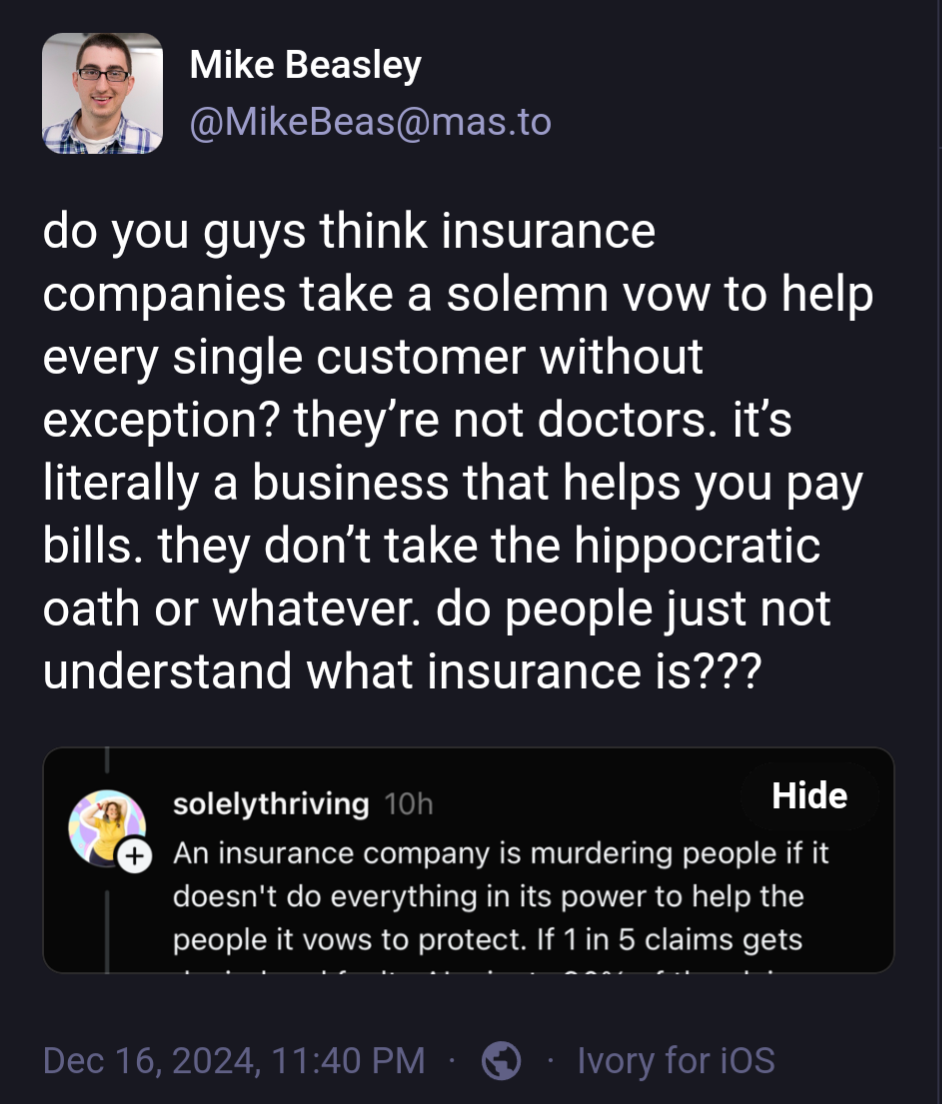this post was submitted on 18 Dec 2024
460 points (95.1% liked)
Microblog Memes
7471 readers
1353 users here now
A place to share screenshots of Microblog posts, whether from Mastodon, tumblr, ~~Twitter~~ X, KBin, Threads or elsewhere.
Created as an evolution of White People Twitter and other tweet-capture subreddits.
Rules:
- Please put at least one word relevant to the post in the post title.
- Be nice.
- No advertising, brand promotion or guerilla marketing.
- Posters are encouraged to link to the toot or tweet etc in the description of posts.
Related communities:
founded 2 years ago
MODERATORS
you are viewing a single comment's thread
view the rest of the comments
view the rest of the comments

You misunderstand. The service that insurance companies provide is one that is for shareholders. It's a way of allocating and rationing medical care while also keeping business going.
Poor people don't own hospitals. Poor people can't develop medicines and medical equipment. Can't train and hire doctors. That stuff is extremely expensive. The capital class owns that stuff, right?
They aren't just going give it away are they? But they do need a labor force that, though desperate, isn't too sickly that their labor can't be exploited.
The service that health insurers provide to their actual customers, the capital class, is to reallocate the aforementioned expenses back onto workers by way of premiums and limiting care to the bare minimum.
This is why health insurance is tied to employment in America. You (most likely) didn't hire your health insurer and negotiate your insurance contract, your employer did. It's not for you, it's for them, and really, for their owners, who extract the value of your healthy labor from your employer.
And this isn't come an-cap or communist hot take, this is just the economics of how healthcare works in America. You're getting the care, sure, and if you're covered hopefully you're in the road to recovery and won't become insolvent due to medical debts, but this system is not for your benefit. It's not out to save you money. You are at best an afterthought, a concept of a customer. More of a number.
The OOP described is, in different terms, as if health insurer was nothing more than a risk pool cooperative.
Here are the customers of UNH:
They also own the hospital groups, the device makers, and the pharmaceuticals.